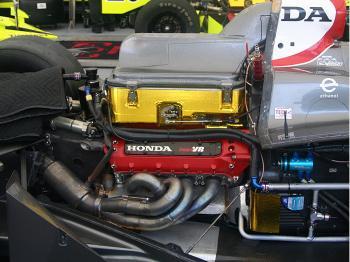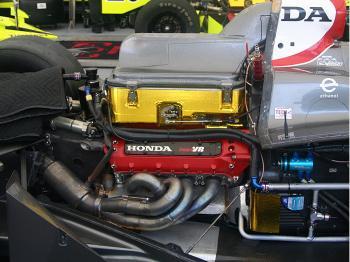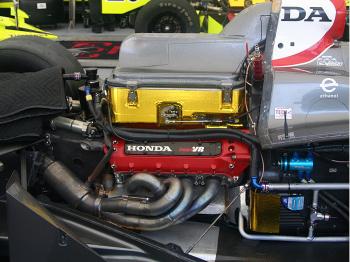All that might change in 2011.
The Volkswagen group (VW, Audi, Porsche) have been showing serious interest in joining Honda as an engine supplier for the Indy Racing League (IRL) IndyCar series when new engine regulations take effect in 2011.
Audi, BMW, Chevrolet, Fiat, Mazda and Volkswagen sent representatives to an IRL meeting to discuss the future specifications for Indy car powerplants. Of those attending, it seems the VW Group has the most to offer and the most to gain.
One of the main topics at the meeting was market relevance. It makes no sense for a manufacturer to spend a lot of money to develop an engine that has nothing to do with the company’s street cars.
IRL is considering returning to turbocharging, as well as allowing four-, six, and eight-cylinder designs to compete head-to-head. The VW Group is interested in developing small-displacement turbocharged engines for its high-performance street cars, and wants to increase its visibility in the U.S. market. The two plans seem a perfect match.
Alfa Romeo is also (rumored to be) interested, but I doubt Alfa has the money available for a serious, long-term investment in IRL. Alfa just doesn’t sell that many cars in the U.S., and doesn’t have the dealer network of the name recognition.
Nothing has been finalized, no contracts have been signed, and right now this is all rumor and speculation. But it is rumor and speculation supported by all the official statements made by the various entities involved.






